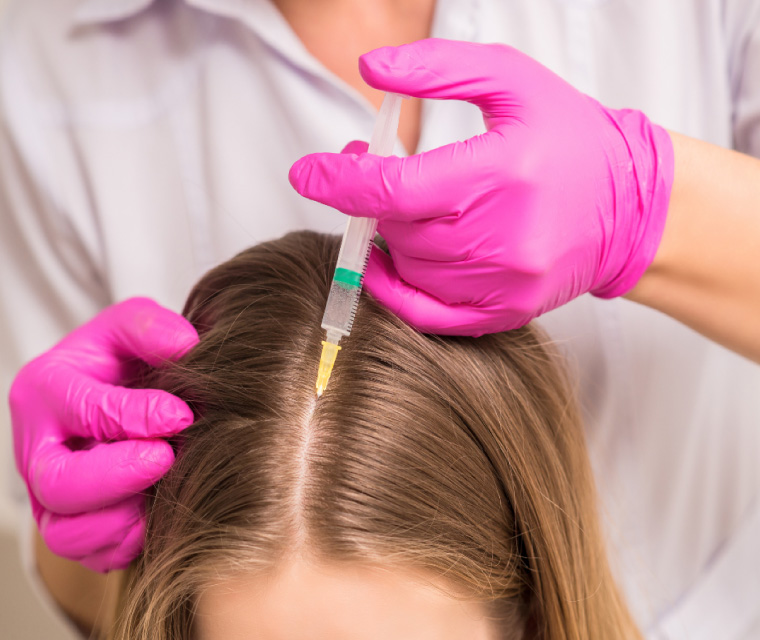Hair Specialist Doctor Treatment Plans That Actually Work
Hair Specialist Doctor Treatment Plans That Actually Work
Blog Article
Hair loss can be distressing, and for many, it’s not just about appearance—it’s about confidence. Finding real solutions begins with understanding the root cause and embracing proven, personalized approaches. While there's a wealth of advice online, nothing compares to the structured care and targeted solutions that come from a Hair Specialist Doctor In Dubai. These professionals focus not just on symptoms but on long-term scalp health, hair regrowth, and sustainable maintenance strategies.
Why Individualized Hair Care Plans Matter
Every scalp is different. From hormonal imbalances and genetics to lifestyle and environmental factors, hair loss can stem from various sources. That's why cookie-cutter treatments often fail. A Hair specialist doctor assesses your unique situation, examining everything from scalp condition to nutritional habits and stress levels. Their goal? To create a treatment plan tailored to your hair’s specific needs. By customizing solutions, they avoid one-size-fits-all products that overpromise and underdeliver. Instead, they combine medical knowledge with technology to restore hair growth effectively and naturally.
The First Step: Scalp & Hair Analysis
Effective treatment starts with in-depth analysis. Advanced imaging tools and microscopic evaluations help assess scalp health, hair density, and follicular activity. This initial evaluation is critical to avoid misdiagnosis and to ensure the right course of action. A clear diagnosis gives the hair expert a roadmap. Whether the cause is androgenetic alopecia, telogen effluvium, or another condition, the treatment must align with the specific pattern and cause of the hair thinning. This diagnostic step ensures every move afterward is intentional and data-driven.

Multi-Layered Treatment Strategies
Successful hair recovery plans don’t rely on a single method. Instead, they often include a combination of therapies, each targeting a different aspect of hair loss. Here’s a look at common components of an effective treatment plan:
. Topical & Oral Applications
These solutions deliver targeted nutrients and active compounds directly to the scalp or internally. Ingredients like minoxidil, amino acids, and botanical extracts work to improve blood circulation, fortify hair follicles, and reduce inflammation.
. Nutritional Guidance
Hair health begins inside the body. Many plans integrate dietary changes or supplementation to address deficiencies in biotin, zinc, iron, and other vital nutrients. A hair expert ensures your body has what it needs to support strong, healthy growth from within.
. Low-Level Laser Therapy (LLLT)
This non-invasive treatment uses light energy to stimulate hair follicles and improve cellular function. It's often recommended for both men and women dealing with thinning or shedding.
. Microneedling & Scalp Rejuvenation
Using tiny needles to create micro-injuries in the scalp, microneedling encourages collagen production and enhances the absorption of topical treatments. It’s an effective way to boost follicle health and support new growth.
Progress Monitoring and Plan Adjustments
One of the most critical—but often overlooked—parts of any treatment is ongoing evaluation. A Hair specialist doctor doesn't just hand you a prescription and send you on your way. They track your progress month by month, tweaking protocols and updating your regimen as your scalp responds. Some people see quick results; for others, the journey takes time. Real treatment plans include benchmarks and reassessments to ensure continued improvement. This adaptability is what separates successful treatment plans from short-term fixes.
Lifestyle and Haircare Routine Integration
An often underestimated factor in hair restoration is daily routine. From the shampoo you use to how often you wash your hair or apply heat, everyday habits can affect progress. Personalized advice helps optimize your haircare routine to complement the treatment. Stress management is another cornerstone of long-term success. Chronic stress can trigger or worsen hair loss, so comprehensive plans often include strategies to improve sleep, reduce anxiety, and support overall well-being.

Success Stories Start with Consistency
The key to making any plan work is consistency. Most effective treatments require commitment—weeks or even months of following through. But when guided by a Hair specialist doctor, that effort pays off. Gradual improvements in thickness, volume, and texture are all signs the body is responding positively. While it's tempting to jump from one trend to another, sticking with a proven strategy allows your hair the time it needs to renew. Combined with professional monitoring, consistent care builds a foundation for lasting results.
Red Flags to Avoid in Hair Treatment
Not all treatments are created equal. Beware of over-the-counter products or "miracle cures" that don’t address your specific needs. A plan that actually works avoids:
Harsh chemicals that irritate the scalp
Treatments that don’t account for your underlying causes
Unverified supplements with bold claims
Neglecting diet and lifestyle factors
The best way to sidestep these pitfalls? Partner with a professional who’s focused on evidence-based solutions rather than hype.
Real Hair Revival Is Possible
Hair Specialist Doctor but it doesn’t have to be permanent. With the right guidance, diagnosis, and commitment, recovery is entirely possible. A well-structured treatment plan doesn’t just stimulate growth—it brings back your confidence. From innovative therapies to holistic health strategies, real change starts with understanding your hair and giving it the customized attention it deserves. When you align with a Hair specialist doctor, you're not just treating symptoms—you're investing in a healthier, more vibrant future for your hair.
Report this page